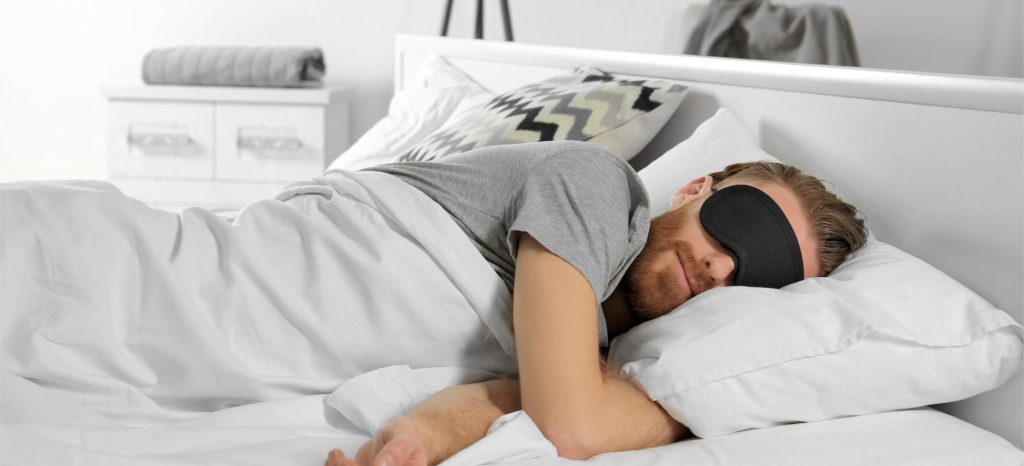If you’re a light or inconsistent sleeper, or your mind sets out to worry right when you get into bed, you may be a dolphin. About 10% of people have the dolphin chronotype.
Dolphins have a hard time relaxing and tend to stay on alert even when they should be in deep slumber. People with this chronotype are sensitive to bumps in the night and wake easily, and many deal with insomnia and anxiety.
Despite having fragmented sleep, dolphins have extremely active minds during the day, with their energy and productivity peaking between 10 a.m. and 2 p.m. Read on to see how you can optimize your schedule to be in line with the tide of your energy ebb and flow.
Key Traits: Conscientious, Goal-Oriented, Risk-Averse, Cautious, Creative
Key Behaviors: Avoids Risky Situations, Strives for Perfection, Obsessive-Compulsive Tendencies, Fixates on Details
Your Best Sleep-Wake Schedule
Dolphins have a low sleep drive. You typically wake up around 6:30 a.m. and should avoid sleeping in no later than 7:15 a.m. Because dolphins tend to struggle with sleeping through the night, skip the midday nap and force yourself to stay awake. This will make falling asleep at your preferred bedtime easier.
Sleep in (7:15 a.m.)
Go to bed (11:30 p.m.)
Dolphins are susceptible to being “tired and wired.” You tend to see a rise in core temperature at night and are more prone to wake-ups than most. Getting in bed too early may result in anxiety-related insomnia, so wait to go to bed until 11:30 p.m.
Dolphins should not hang out, eat food, or watch TV in bed. Set aside time for a bedtime routine to relax naturally into sleep. And since you likely rouse at the smallest noise, create the ideal sleep environment with a bedroom that is cool, dark, and quiet for better sleep consistently.
Strategize Your Workday
Dolphins are slow to start in the morning, sometimes appearing to be in a daze early on. Start your day off with planning, organizational, or administrative tasks. By late morning your personality will start to emerge, and then it’s the ideal time for collaborative creative thinking or job interviews.
Use the late afternoon and evening to obsess over a project. Whether it’s abstract brainstorming or tackling an important meeting, this is the time to do the heavy lifting intellectually when your cognitive abilities and alertness are at their peak.
It is essential for dolphins to take a post-work break to decompress. Directing your evening energy surge toward something enjoyable helps you leave the workday behind and make sure you have adequate time to power down before bed.
Creative thinking and problem-solving tasks (10 a.m. – 2 p.m.)
Job Interviews (11 a.m. )
Work lunches (12 – 1 p.m.)
Brainstorming (2 – 4 p.m.)
Important meetings, calls, and emails (4 – 6 p.m.)
Busy work (5 – 6 p.m.)
Better Manage Your Relationships
Introverted and intelligent, dolphins tend to shy away from confrontation and hesitate to speak up about what’s on their mind. Dolphins also tend to be less guarded in their relationships, demonstrating exceptional emotional attention and listening skills.
Have an important conversation with your partner (7 p.m.)
Spend time with your kids (7 – 8 p.m.)
Have sex (8 – 10 p.m.)
Call family or friends (9 – 10 p.m.)
Your mood will peak in the early evening, making it the best time to have a hard conversation with your partner, family, or kids. Better yet, do it after a carb-heavy dinner when you’ll feel more agreeable. Your patience will peak around 7 p.m.
Dolphins become increasingly anxious as the night goes on and their cortisol levels rise. Look for an activity that makes you feel happy or loved during this time. Calling or spending quality time with people you cherish can ward off or lessen those emotions before bed.
When to Sip, Snack, and Splurge
The dolphin’s metabolism works overtime overnight—more so than other chronotypes.
By starting the day with a glass of water and a high-protein breakfast, you can shake off any morning grogginess and feel energized. Strategic consumption of caffeine is particularly important for dolphins, who already have fluctuating energy levels, so wait to have that first cup of coffee until mid-morning.
Have coffee (8:30 – 10 a.m.)
Eat a balanced lunch (12 p.m.)
Snack time (3 p.m.)
Have a drink (6 – 8 p.m.)
Eat a carb-heavy dinner (7:30 p.m.)
Don’t forget to eat lunch! For those dolphins with hyperactive minds, your day can often get away from you. Eating a balanced lunch is essential for replenishing nutrients needed to keep your stress levels low. Set a reminder on your phone so you don’t skip it.
By late afternoon you will see your energy and cortisol levels rise, making you the most alert you’ve been all day. Make use of this time and avoid eating dinner too early. Reserve the end of the evening for a carb-heavy dinner that will cause your serotonin levels to go up and help you relax leading up to bedtime.
Streamline Your Fitness Goals
Try to get some movement first thing in the morning. Your blood pressure, body temperature, and cortisol levels are low, so you should turn to exercise to increase them. It might be the last thing you want to do—but do it anyway.
Play a team sport (5 – 7 p.m.)
Strength train (8 p.m.)
Practice yoga (10 p.m.)
Any physical activity can help dolphins recharge. Taking a cool shower after said activity can help make you more alert.
In the evening, a dolphin may notice they suddenly hit their stride and feel refreshed. If you’re a dolphin who doesn’t have a disciplined gym routine, the evening can be a great time to play a team sport or strength train. But avoid activity too late into the night—dolphins should try to wind down with some yoga and release the tension of the day before bed.
Ask the Sleep Doctor
Have questions about sleep? Submit them here! We use your questions to help us decide topics for articles, videos, and newsletters. We try to answer as many questions as possible. You can also send us an email. Please note, we cannot provide specific medical advice, and always recommend you contact your doctor for any medical matters.



